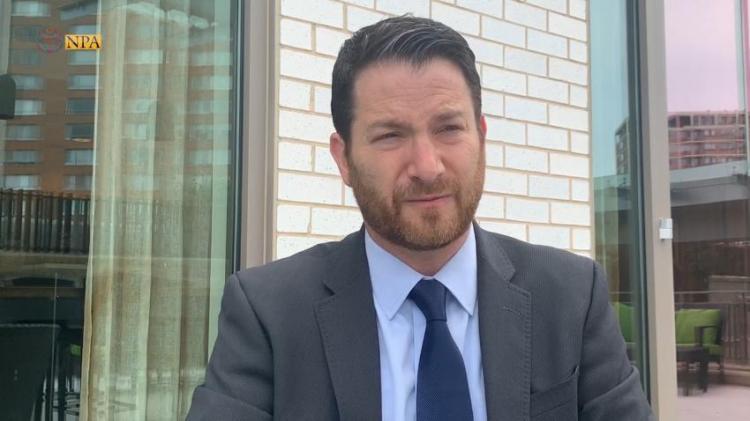Getting Iran out of Syria unrealistic optimism, Former Obama administration official
Washington DC – North-Press Agency
Al-Monitor revealed on Monday statements by Russian officials denying their intention to getting Iran out of Syria in exchange for lifting the US imposed sanctions on the Syrian government.
Joel Rubin, former US Deputy Assistant Secretary of State John Kerry, believes that there’s still a long way to get Iran out of Syria or to reduce its role in the region.
Boutros al-Marjan, chairman of the International Committee of the Syrian Parliament, told the Russian newspaper Izvestia that he would not reject Iranian military support or demand Iran’s withdrawal from Syria, even if the United States agreed to lift the sanctions.
In an interview with North-Press, Rubin said, Russia doesn’t have to abandon Iran, which it may be in need in the future stages, despite the well-known strategy of President Trump against Tehran, his administration did not dictate any clear conditions or demands on the Russians to distance Iran.
Rubin also referred to a “dangerous” merger taking place in Syria between the government forces and the Iranians, and perhaps something similar to what happened in Iraq, where Iran is advancing its ability to restructure the Syrian forces in line with its interests surpassing the Russians in this regard.
While any talks of Iran’s removal from Syria remains within the scope of “illusion”, as long as the United States is giving Russia the priority to control the movements in Syria, and the latter in turn is compelled to take advantage of Iran’s influence.
Rubin believes that the United States ability to make achievements in Syria is inconclusive, and its presence is uncertain, indicating that there are significant gaps in the strategy, “We are talking about such broad objectives as fighting the Islamic State, preventing its return, and preventing Iran from benefiting the region, while we didn’t empower our allies on the ground, not even to manage the remains of ISIS fighters,” he said.
As for the Russian role in Idlib and the US position on the latest developments, Rubin points out that President Trump is interested in only one political message in Syria regarding the opposition: “If Assad uses chemical weapons, he will strike his regime.” This is a political step that his predecessor Obama did not take.
“The human rights agenda overall for the current administration is very poor, the president isn’t making a core pillar of his communications, and we do not find the officials talking about human rights values even in their meetings with the leaders of the most authoritarian countries, while the situation in Idlib is complicated by the affiliation of some groups to Islamist entities associated with enemies of the United States such as al-Qaeda,” Rubin said.
The current administration’s lack of attention to human rights issues applies to every conflict in the region, yet Rubin doesn’t expect that regimes such as “the military council” in Sudan will receive any support even from Trump’s administration, especially for its association with war crimes in the past, “The military experience in Egypt and their access to power is very different from the one in Sudan, it’s not the same, Egypt got our support because it’s an old ally for decades, we have spent billions of dollars on Egypt providing them an economic military assistance under a historic commitment, and for its location being close to Israel, makes us care about a system that secures the region.”
Rubin concluded saying: “The recognition of Al-Sisi is a much easier process than normalizing Sudan’s military leaders, we shouldn’t expect the United States to welcome or ever take a side with them, and also I don’t expect any attitude by the US defending the demonstrator’s facing the repression machine.”
Washington DC – Hadeel Oueis

